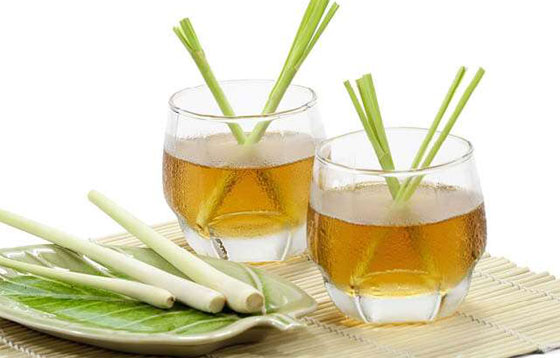These foods have natural chemopreventive properties
The greatest ally against chronic disease may be found in your everyday diet, from fresh, raw fruits and vegetables to popular beverages such as lemongrass and green tea.
 Food is life and this couldn’t be truer elsewhere than in disease prevention. An estimated 42% of all cancers, for one, may be prevented by diet and lifestyle alone. The numbers are likely to be even higher for some types of cancer.
Food is life and this couldn’t be truer elsewhere than in disease prevention. An estimated 42% of all cancers, for one, may be prevented by diet and lifestyle alone. The numbers are likely to be even higher for some types of cancer.
There’s increasing awareness of the power of food and medicinal plants in preventing and helping to heal cancer. You may find on internet some of the biggest open-access databases on this topic, providing more than 10,000 studies on the value of nearly 1,000 natural substances for cancer (for exemple greenmedinfo.com). Following are some commonly available foods that are natural chemopreventive agents.
Foods with anticancer properties
- Fruits
The consumption of fruit and vegetables has been linked to a reduced risk of cancer. According to a report from the 2007 World Cancer Research Fund/American Institute for Cancer Research, foods containing vitamin C probably protect against esophageal cancer, with fruits in particular helping against gastric cancer.
Similar findings were observed in a 2016 study that saw “a marginally decreased risk” of esophageal cancer, squamous cell carcinoma and esophageal adenocarcinoma, along with a non-significant risk reduction in gastric cardia cancer, with each 100 grams (g) a day increase of citrus fruit intake. Consuming citrus fruits has also been tied to decreased bladder cancer risk.
Results from a 2019 study offered strong evidence that higher fruit intake is negatively associated with the risk of lung cancer among both current and former smokers, while vegetable intake is linked to a significantly reduced risk of lung cancer in current smokers. A meta-analysis also showed a correlation between fruit and vegetable intake and a reduced risk of oral cancer.
- Cruciferous vegetables
The family (Cruciferae) of vegetables that includes cauliflower, cabbage, kale, broccoli and Brussels sprouts, is renowned for its outstanding action against cancer. Cruciferous veggies have been found to have anticancer properties, with research showing:
- A high intake was inversely associated with renal cell carcinoma risk among Americans, based on a meta-analysis
- A diet that includes cruciferous vegetables could be a crucial modifiable risk factor for ovarian cancer, the fifth leading cause of cancer-related deaths among women
- Consuming cruciferous vegetables was strongly associated with a reduced risk of prostate cancer progression
- Consuming cruciferous vegetables may reduce lung cancer risk among men who currently don’t smoke
- Turmeric
A yellow substance from the root of the medicinal plant Curcuma longa, curcumin is the main active ingredient in the spice turmeric with strong anti-inflammatory and antioxidant properties. Due to the role of oxidative damage in a range of conditions such as cancer, atherosclerosis and neurodegenerative diseases, curcumin is believed to play an important role.
Research from 2001 showed that curcumin is safe in humans at up to 8,000 milligrams (mg) a day when taken orally for three months, providing chemopreventive properties. Curcumin combined with turmerones, the essential oil components of turmeric, may be a powerful intervention to prevent inflammation-associated colon carcinogenesis in animal models.
“ … TUR [turmerones, a bioactive compound in turmeric] is a novel candidate for colon cancer prevention. Furthermore, we consider that its use in combination with CUR [curcumin] may become a powerful method for prevention of inflammation-associated colon carcinogenesis,” researchers wrote in a study published in Biofactors.
- Green tea
Green tea, another popular beverage around the world, scores high in chemoprevention. Among Chinese women, researchers concluded that higher intake of mushrooms slashed breast cancer risk in pre- and post-menopausal women and observed an additional reduced risk from the joint effect of mushrooms and green tea.
In a randomized clinical trial of brewed green and black tea in prostate cancer patients prior to prostatectomy, green tea induced transformations in inflammation and systemic oxidation, and the uptake of its polyphenols in prostate tissue displayed a potential role worthy of further research in preventing and treating prostate cancer.
In a population-based study, women who reported drinking at least one cup of green tea a day had a 54% reduction in ovarian cancer risk. Increased green tea consumption might even prove helpful in reducing the risk of colorectal cancer in those with unhealthy lifestyles.
yogaesoteric
December 5, 2021
Also available in:
 Français
Français
